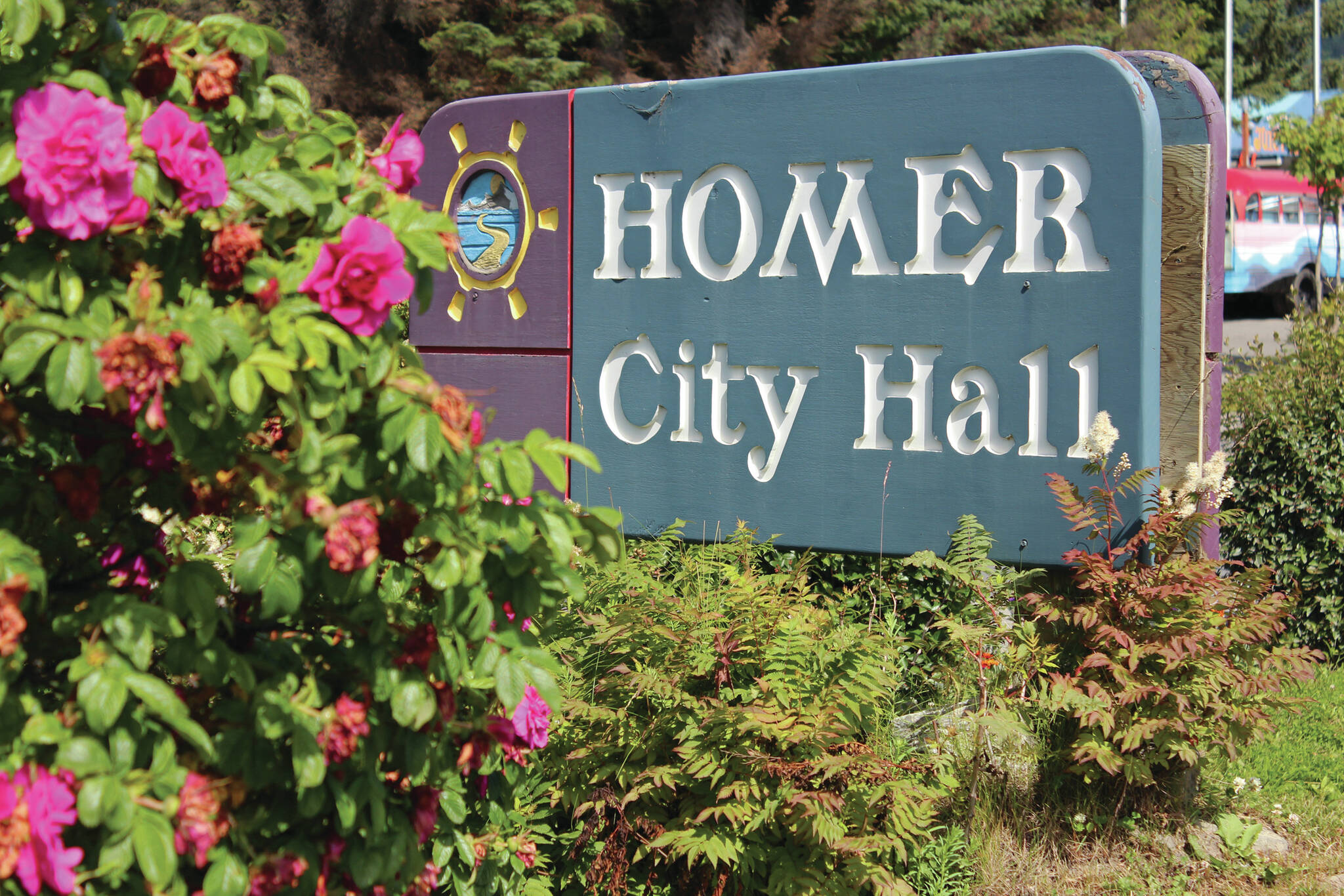Attention Homer: Keep an eye on the upcoming city council meeting agenda for a number of opportunities for public comment.
At their last regular meeting on Monday, Nov. 13, the Homer City Council introduced several ordinances that will each be subject to a public hearing at the council’s next meeting on Nov. 27.
Ordinance 23-55 would accept and appropriate a grant from the Alaska Division of Homeland Security and Emergency Management to upgrade the Homer Volunteer Fire Department’s portable radios and provide a backup repeater for the city’s public safety radio system.
According to an Oct. 20 memorandum to the council from Homer Police Department Chief Mark Robl, the backup repeater would be an important addition to the city’s public safety communications equipment.
“When one repeater goes down, we lose that radio resource as it is sent back to the factory for repair,” the memo reads. “This can have serious consequences during a major incident response.”
The ordinance also, upon city staff recommendation, authorizes the city manager to, upon approval from DHS&EM, enter into a sole source contract with ProComm Alaska to purchase, program and install the radio equipment.
In addition to ProComm Alaska being the only qualified firm in the state for the job, the company has been servicing Homer’s radio system for the past 30 years, the memo states.
“Their service has been superb and delivered in an extremely professional manner,” Robl wrote in the memo. “They are intimately familiar with our system and the unique radio frequency anomalies in our area.”
Ordinances 23-58 and 23-59 aim to deal with Homer’s raw water transmission mains.
Ordinance 23-58 will accept and appropriate a DHS&EM Hazard Mitigation Grant Program award to replace the “47-year-old, seismically vulnerable, cast iron” mains with “more resilient” pipe constructed from high-density polyethylene and designed according to specifications in the American Lifelines Alliance’s “Seismic Guidelines for Water Pipelines,” published in 2005.
“Due in large part to disruptions at FEMA caused by COVID-19, this grant has been nearly four years in the making and we are very excited to finally get the implementation phase of this very important project underway,” special projects and communications coordinator Jenny Carroll wrote in a Nov. 6 memorandum to city council.
The water mains in question run 8,800 linear feet in total and transfer raw water from Bridge Creek Reservoir to the water treatment plant, according to the memo.
“Major damage to the raw water transmission mains would make it impossible to serve the town with treated drinking water and would reduce the City’s ability to provide adequate water pressure for fire protection,” Carroll wrote.
One of the current mains is “undersized” at 8 inches to meet the maximum capacity of the water treatment plant, while the other, at 10 inches, is “at capacity now,” the memo states. Additionally, the current cast iron mains are “brittle, highly corrosive, and as such, highly susceptible to earthquake damage.”
Carroll also noted that multiple repairs have already been made to both mains, the last two of which were in response to earthquake damage.
The City plans to replace both mains with 12-inch high-density polyethylene pipes, providing system redundancy and enabling “an adequate amount of raw water” to be transported to the treatment plant “for plant maximum daily flow, both now and for future expansion of the treatment facility,” the memo states.
Ordinance 23-59 will accept a second DHS&EM Hazard Mitigation Grant Program award to “help offset costs related to managing and administering the Federal award to ensure that federal, state or tribal requirements are met.” Funds from this award will be used to reimburse the City of Homer for the above-described costs.
Finally, Ordinance 23-60 will work to increase pedestrian safety in city cul-de-sacs.
The ordinance seeks to amend Homer city code chapter 7.04 by adding a new section on local traffic provisions by reducing speed limits on city cul-de-sacs, “from the nearest cross street to the termination of the cul-de-sac,” to 15 mph. It also would amend city code section 7.04.030 on traffic fine schedules to include fines for violating the new speed limit.
This ordinance follows Homer City Council’s continued efforts to increase pedestrian safety in town, since many streets still lack adequate sidewalks or footpaths. Cul-de-sacs in particular have attracted attention in the conversation about safety since they can have bends or curves, may lack a clear line of sight, or are often areas where young children play and people with short or narrow driveways are sometimes required to back out of their driveways, the ordinance reads.
It also states that reducing the speed limit to 15 mph is a “reasonable, safe and effective way to keep the driving public in harmony” with those who dwell in cul-de-sacs.
The ordinances scheduled for public hearings, as well as their backup materials, can be read in full at https://www.cityofhomer-ak.gov/citycouncil/city-council-regular-meeting-306.
Public hearings and council votes on these ordinances will take place at the next Homer City Council meeting on Monday, Nov. 27 at 6 p.m. in the Cowles Council Chambers at City Hall.


